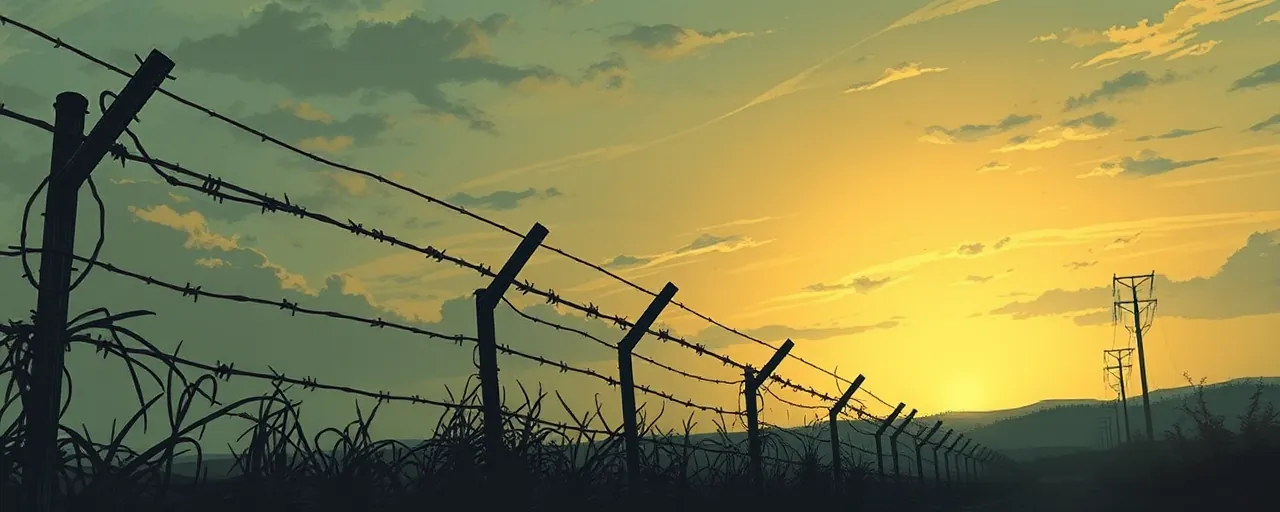A Sentence That Echoes Beyond the Courtroom
Kirkville Virgo, a 47-year-old Jamaican man, will spend the next 14 years of his life behind bars. His crime? Attempting to possess methamphetamine with intent to distribute, a plot unraveled by a sting operation in a Richmond, Virginia hotel last year. The details are stark: a package intercepted, 18 pounds of meth swapped for rock salt, and Virgo arrested after claiming it under a false name. To federal authorities, this is a triumph, a clear signal that drug trafficking won’t be tolerated. Yet beneath the surface of this victory lies a deeper, more troubling story, one that demands we ask: who is truly served by this relentless pursuit?
Virgo’s case isn’t just about drugs. It’s about a system that ensnares people like him, individuals already pushed to the margins by poverty, displacement, and a punitive immigration framework. Deported in 2013, he returned illegally, a felony that now amplifies his sentence. Advocates for immigrant rights argue this isn’t justice, it’s a double punishment, a cycle of exclusion and incarceration that ignores the desperation driving such choices. The United States, a nation built on second chances, seems to reserve them only for some.
This isn’t an isolated incident; it’s a symptom of a broader war on drugs that’s morphed into a war on people. As overdose deaths climb and communities fracture under the weight of addiction, the question grows louder: are we solving a crisis, or deepening it? The liberal vision for a safer, fairer society demands we look beyond the gavel and into the lives upended by these policies.
The Methamphetamine Mirage
Methamphetamine isn’t just a drug; it’s a specter haunting America’s heartland and urban sprawl alike. Federal data reveals it accounts for nearly half of all drug trafficking cases, its purity soaring to levels unseen in decades. Two-thirds of samples tested in 2022 exceeded 96%, a chilling statistic that underscores its potency and reach. From California to Virginia, cartels like Sinaloa churn out this poison in superlabs south of the border, flooding our streets with a substance that hooks fast and kills faster.
Law enforcement touts seizures and arrests as victories, pointing to operations like the one that nabbed Virgo. In Arkansas, ICE and state police recently seized over 15,000 pounds of drugs in three weeks, a haul that sounds impressive until you consider the scale of the trade. Borders remain porous, smuggling methods evolve, and the supply persists. Critics of this approach, including public health experts, argue it’s a game of whack-a-mole, one that does little to stem demand or heal the addicted. Laredo, Texas, saw overdose deaths drop 45% after investing in naloxone and treatment - a testament to what works: treatment, not handcuffs.
Yet the system doubles down on punishment. Virgo’s 14-year sentence, steepened by his immigration status, reflects a philosophy that values retribution over redemption. Supporters of tough-on-crime policies claim it deters trafficking, but evidence begs to differ. Recidivism rates hover stubbornly high, with states like Alaska reporting over 60% of drug offenders back in custody within three years. The real deterrent, studies show, lies in jobs, housing, and therapy - solutions drowned out by the clamor for longer sentences.
A System Rigged Against the Vulnerable
Kirkville Virgo didn’t stumble into this alone; he’s a product of a world where survival often means breaking laws others never have to face. Born in Jamaica, deported once before, he’s part of a vast diaspora caught in America’s immigration vise. Under 8 U.S.C. § 1326, his illegal re-entry alone could’ve landed him two years; tack on the meth, and it’s 14. This isn’t justice tailored to the crime, it’s a sledgehammer aimed at those already down. Immigrant advocates decry it as a policy that punishes the poor and desperate twice over, first by exile, then by prison.
Compare this to the leniency often afforded white-collar criminals or well-connected offenders. The disparity stings. Drug trafficking’s toll on communities is real - violence, addiction, shattered families - but so is the toll of a justice system that targets the powerless while cartels rake in billions. Historical shifts tell the tale: as domestic meth labs waned, production moved to Mexico, yet the focus stays on street-level players like Virgo, not the kingpins calling the shots.
Voices pushing for reform - from grassroots organizers to senators like Cory Booker - argue for a pivot: decriminalize small-scale possession, fund rehab, and hit traffickers where it hurts, their wallets. Opponents insist harsh penalties keep us safe, but the data disagrees. Billions spent on enforcement dwarf investments in prevention, and the cycle spins on. It’s not about coddling criminals; it’s about breaking a machine that grinds up lives and calls it progress.
Time for a Reckoning
Kirkville Virgo’s story isn’t the end; it’s a flare lighting up a broken landscape. America can’t keep locking away its problems and expect them to vanish. The drug war’s human cost - families torn apart, communities bled dry, and a generation warehoused in cells - demands a reckoning. We’ve tried punishment for decades; the overdose charts and prison rolls prove it’s not working. A liberal vision dares to imagine more: a nation that heals its wounds instead of widening them.
This starts with seeing people like Virgo as more than their worst moment. It means dismantling a system that stacks the deck against the vulnerable and replacing it with one that lifts them up. The road’s long, but the stakes are higher - a future where safety comes from hope, not bars. Anything less is a betrayal of what this country claims to be.
